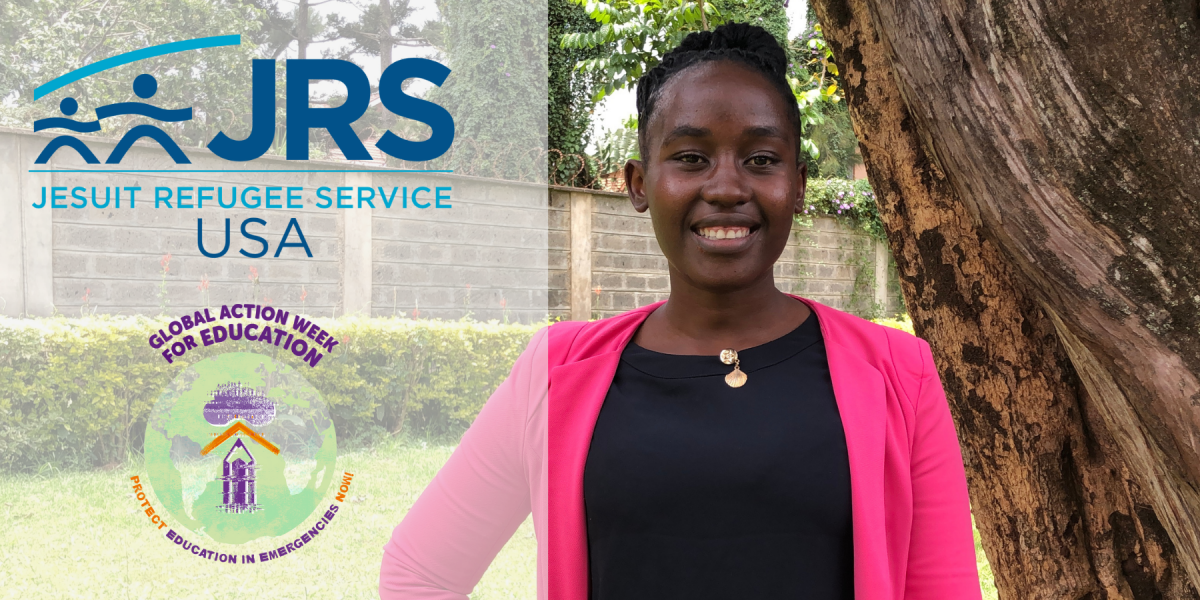
It’s Global Action Week for Education – and the perfect time to tell you about how JRS is actively responding to the need for employment, income generation, and satisfying career paths for young refugees.
Having the chance to work, earn a living, and be self-reliant is one of the most effective ways for refugees to rebuild their lives. Refugees have their dignity and hope reaffirmed when they acquire the means to earn their own living and support their families.
This is Fabiola’s story:
Fabiola has lived her whole life as a refugee. Now 25 years old, her family fled the genocide in Rwanda in 1994, and she was born in a refugee camp in Tanzania. At two months old, her family made its way to Nairobi, Kenya, but is still seeking formal refugee status and all of the benefits that go along with it.
Fortunately, she was able to access education and received a scholarship from JRS Kenya to complete secondary school. But after graduation, she had to stay home for three years as there were no opportunities for further education or legal work.
“Being at home was discouraging,” Fabiola said. “I saw other students pursuing university, and I prayed for peace of mind that one day I would have the same opportunity.”
In 2020, JRS reached out to Fabiola about a new initiative — Pathfinder — which would give her the chance to achieve her dream. In Kenya, Pathfinder features a partnership with Southern New Hampshire University that provides refugee students with the opportunity to pursue an associate’s degree and work toward a bachelor’s degree in a field of study relevant to their current context. This includes healthcare management, business management, and communications.
The competency-based program provides a self-paced online learning platform that accommodates students’ schedules. It includes an internship component that has both in-person and virtual components with JRS staff accompanying students throughout their time participating in the program. Students from Nairobi and Kakuma refugee camps in northern Kenya are eligible for the program, which has graduated a total of 18 students since 2018. Today, 130 students are currently enrolled and receive ongoing support from JRS staff, including access to computers and the internet.
“Being with JRS has taught me a lot,” Fabiola said. “I learned how to use a computer when I first started, and now I look forward to graduating with my BA in healthcare management next month. I hope that this program will last a long time so that it can help more refugees. We want to help other refugees and Kenyans so that we can bring change and positively impact the world.”
Fabiola’s story is unique – but it doesn’t have to be. You can learn how governmental and non-governmental organizations alike can help more refugees access post-secondary education here.



